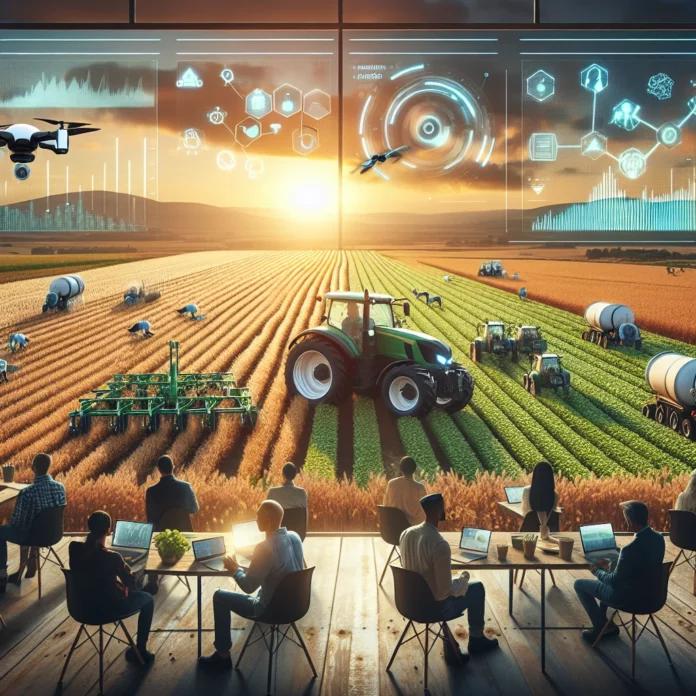As the global population continues to rise and climate change introduces new obstacles to agriculture, farmers and researchers are looking to technology for innovative solutions to feed the world. One such solution is smart agriculture, also known as precision agriculture. Smart Agriculture is designed to enhance efficiency and minimize waste in farming operations through the use of advanced technologies. It enables farmers to more accurately monitor and manage their crops, livestock, and land use, leading to improved yields and a reduced environmental footprint. This model of agriculture is still in its infancy, but it holds significant potential for the future of farming. By leveraging technology, farmers can boost their productivity and sustainability, helping to ensure there is sufficient food to feed the ever-growing global population.
- What is Smart Agriculture?
- What are the types of Smart Agriculture?
- Technologies used in Smart Agriculture
- Use Cases of Smart Agriculture
- Benefits of Smart Agriculture
- Challenges of Smart Agriculture
What is Smart Agriculture?
Smart agriculture is a modern farming approach that utilizes technology to maximize agricultural production, enhance efficiency, and minimize waste. It employs various technologies, such as sensors, data analytics, robotics, and the Internet of Things (IoT), to more accurately and efficiently monitor and manage crops, livestock, and land use. It allows farmers to gather and analyze data on soil conditions, weather patterns, plant health, and other factors that influence crop growth and yield. This data can be used to make more informed decisions about planting, fertilizing, and irrigating crops and can also help farmers to identify and address problems more quickly.
By using sensors to monitor soil moisture levels and weather patterns, farmers can more accurately time irrigation and reduce water usage. Similarly, using precision fertilization techniques can reduce the amount of fertilizer needed and prevent excess nutrients from leaching into nearby waterways. Overall, technology holds great promise for the future of farming, as it can help increase productivity and sustainability while reducing waste and environmental impact.
Related Article: Can blockchain make agriculture smart?
What are the types of Smart Agriculture?
There are various types of smart agriculture technologies, each of which serves a different purpose. Some common types include:
Precision Farming
Precision farming, or precision agriculture, involves data analytics, GPS mapping, and advanced sensors to monitor soil and plant conditions, weather patterns, and other factors impacting crop growth. The data collected from sensors can be analyzed to create precise maps of farmland, which can be used to optimize planting, fertilization, and irrigation. This helps farmers to make more informed decisions about when and where to plant crops, how much fertilizer to apply, and how much water to use. As a result, precision farming can help increase crop yields, reduce waste, and lower costs.
Livestock Monitoring
Livestock monitoring involves using

Post Disclaimer
The information provided in our posts or blogs are for educational and informative purposes only. We do not guarantee the accuracy, completeness or suitability of the information. We do not provide financial or investment advice. Readers should always seek professional advice before making any financial or investment decisions based on the information provided in our content. We will not be held responsible for any losses, damages or consequences that may arise from relying on the information provided in our content.



